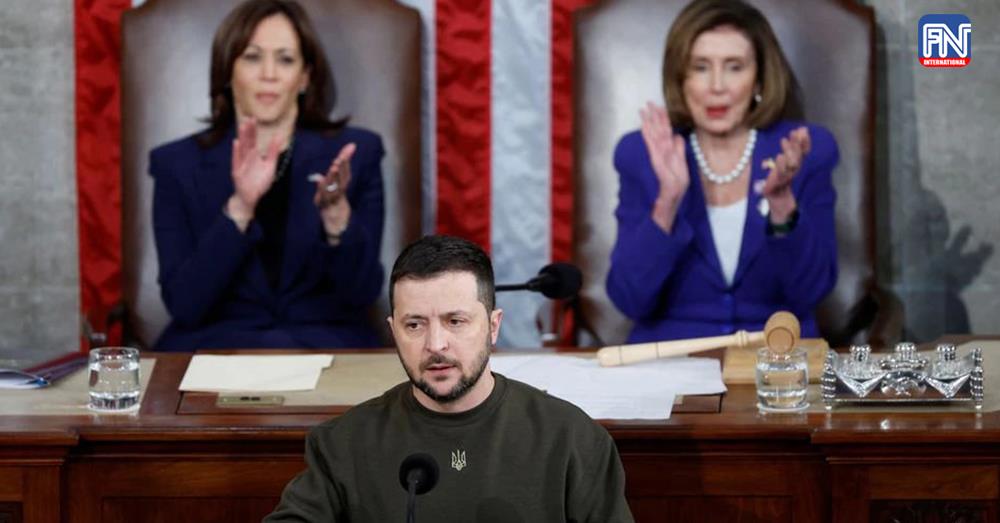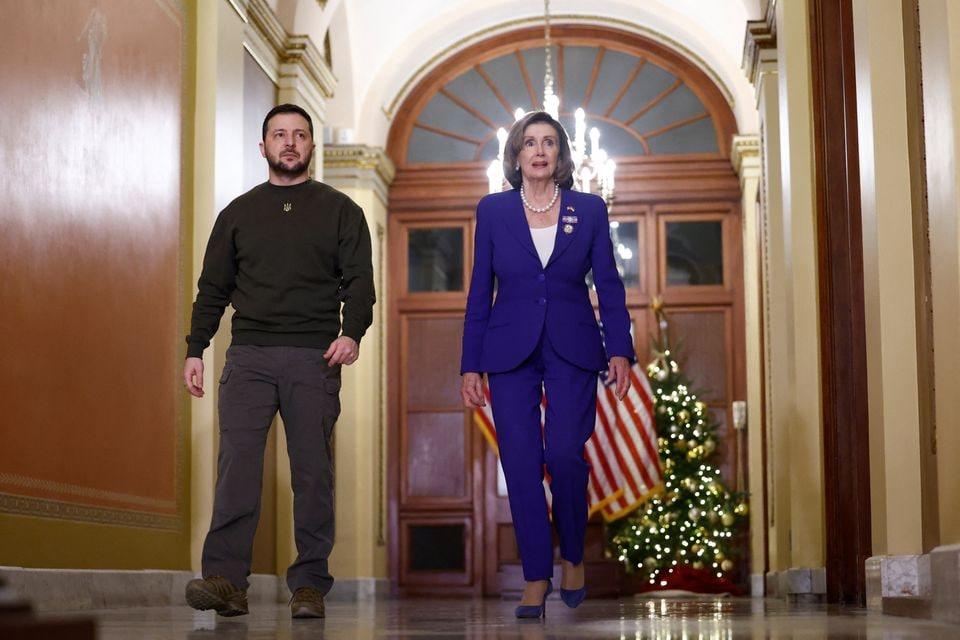WASHINGTON, Dec 21 (AFP) - Ukrainian President Volodymyr Zelenskiy addressed a joint meeting of the U.S. Congress on Wednesday, aiming to persuade Republican lawmakers to continue to fund his country's defense against Russia.
"It is a great honor for me to be at the US Congress and speak to you and all Americans. against all doom and gloom scenarios, Ukraine did not fall. Ukraine is alive and kicking," said Zelenskiy, who received a standing ovation when he walked into the chamber.
"We defeated Russia in the battle for the minds of the world," he said.
Three members held up a large Ukrainian flag during the ovation.
Following a meeting at the White House with Democratic President Joe Biden, Zelenskiy's speech needed to resonate with a bipartisan audience of U.S. lawmakers, including House of Representatives Republicans, who have voiced increasing skepticism about continuing to send tens of billions of dollars to Ukraine.
Zelenskiy joined a long list of world leaders to address joint meetings of the Senate and House, a tradition that began in 1874 with a visit by Hawaiian King Kalakaua and included almost legendary wartime visits by British Prime Minister Winston Churchill, as well as kings, queens and one pope.
It will also mark one of the last times Nancy Pelosi, a Democrat, presides over the chamber as Speaker of the House, before Republicans take the majority on Jan. 3 and she returns to the rank and file of her caucus.
Planning for Zelenskiy's speech began in October, according to a Pelosi aide, when she met with Ruslan Stefanchuk, chairman of Ukraine's parliament, the Verkhovna Rada. Pelosi was attending the First Parliamentary Summit of the International Crimea Platform in Zagreb, Croatia, at the time.
Exactly 300 days after Russian troops invaded and amid intensified rocket attacks that have left Ukrainian cities in ruins, Zelenskiy arrived knowing that the Senate and House control America's purse strings.
His timing was perfect, as Congress is on the verge of approving an additional $44.9 billion in new emergency military and economic assistance, on top of some $50 billion already sent to Ukraine this year.








